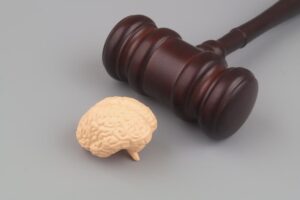A brain injury is one of the worst possible outcomes after an accident. Your loved one may likely never be the same again, and they can be left unable to work and experience the life that they did before the accident. At the same time that your family member needs medical care for their injuries, they also need to pursue financial compensation if someone else was to blame for the accident. When your loved one has suffered a brain injury, there is only so much that they can do, and they can lack the capacity to deal with the legal process. A brain injury lawyer can help your family as you seek the settlement that your family member deserves.
Make Sure That Your Loved One Gets the Medical Help They Need After Suffering a Brain Injury
 If your loved one has suffered a brain injury, seeking immediate and ongoing medical care is essential. Brain injuries can range from minor concussions to severe traumatic brain injuries (TBI), and even seemingly minor symptoms can have serious, long-term consequences if left untreated. Prompt medical evaluation ensures that the injury is properly diagnosed and treated, reducing the risk of complications such as swelling, bleeding, or cognitive decline.
If your loved one has suffered a brain injury, seeking immediate and ongoing medical care is essential. Brain injuries can range from minor concussions to severe traumatic brain injuries (TBI), and even seemingly minor symptoms can have serious, long-term consequences if left untreated. Prompt medical evaluation ensures that the injury is properly diagnosed and treated, reducing the risk of complications such as swelling, bleeding, or cognitive decline.
After the initial emergency care, follow-up with specialists is critical. This may include neurologists, neuropsychologists, physical therapists, and speech or occupational therapists, depending on the nature and severity of the injury. Your loved one may need imaging studies like CT scans or MRIs to assess damage and monitor recovery.
Rehabilitation and therapy often play a key role in helping individuals regain function and adjust to any lasting effects. As a caregiver or concerned family member, you should help coordinate appointments, monitor symptoms, and advocate for comprehensive treatment. Keeping records of medical care and progress is also important, especially if legal or insurance issues arise.
By taking an active role in their medical care, you help ensure your loved one receives the best possible support during recovery from a life-altering injury. You can also help safeguard their right to receive full compensation for their injury if they can prove fault. Delaying medical care may cause the insurance company to argue that your loved one failed to take the steps necessary to mitigate their own damages.
Make Sure That You Get Your Loved One Help with Daily Activities After a Brain Injury
After a brain injury, your loved one may struggle with basic daily activities such as bathing, dressing, eating, or managing medications. These challenges can stem from cognitive, physical, or emotional impairments caused by the injury. It is essential to recognize these needs early and ensure they receive the proper support to maintain their safety, dignity, and quality of life.
Start by consulting medical professionals to assess your loved one’s level of function and specific limitations. Depending on their needs, you may need to coordinate in-home care, occupational therapy, or personal assistance services. Trained caregivers can help with routine tasks while promoting independence and recovery.
Do not overlook the emotional and psychological impact. Brain injury survivors often experience frustration, depression, or anxiety as they adapt to new limitations. Supportive services, structure, and patience are key to rebuilding their confidence.
Hire a TBI Attorney After an Accident
 If you or a loved one has suffered a brain injury in an accident, hiring a brain injury attorney is one of the most important steps you can take to protect your legal rights and secure the compensation you need. Brain injuries can result in long-term physical, emotional, and financial challenges, including medical expenses, lost income, cognitive impairments, and the need for ongoing care.
If you or a loved one has suffered a brain injury in an accident, hiring a brain injury attorney is one of the most important steps you can take to protect your legal rights and secure the compensation you need. Brain injuries can result in long-term physical, emotional, and financial challenges, including medical expenses, lost income, cognitive impairments, and the need for ongoing care.
A skilled brain injury attorney understands the complex nature of these cases and will work to identify all responsible parties, whether the injury occurred in a car crash, slip and fall, workplace accident, or other traumatic event. They will gather medical records, expert opinions, accident reports, and other critical evidence to build a strong claim on your behalf.
An attorney can also handle all communications with insurance companies and opposing parties, ensuring you aren’t pressured into accepting a low settlement. Their goal is to secure maximum compensation for current and future medical costs, rehabilitation, pain and suffering, and loss of earning capacity.
Your loved one may be unable to speak with the TBI accident lawyer on their own due to complications from the injury. As the family, you may need to contact the brain injury lawyer to get the legal process started. Then, you may need to work with the brain injury lawyer as the legal process unfolds, providing them with the support that they need as they pursue compensation on your loved one’s behalf.
Fight for Financial Compensation If Someone Else Was Responsible for Your Loved One’s Brain Injury
If your loved one has suffered a brain injury due to someone else’s negligence, whether in a car accident, fall, workplace incident, or another traumatic event, you have the right to pursue financial compensation on their behalf. Brain injuries can lead to lifelong medical needs, rehabilitation, lost income, emotional trauma, and reduced quality of life. Holding the responsible party accountable is not just about justice. It is about securing the resources your family needs for recovery and future care.
A brain injury can drastically change a person’s life, making it difficult or impossible for them to advocate for themselves. That is where you step in. With the help of an experienced traumatic brain injury attorney, you can file a personal injury claim or lawsuit against the negligent party. Your Nashua injury attorney will investigate the incident, gather evidence, consult with medical experts, and calculate the full extent of damages.
Compensation can cover current and future medical bills, in-home care, therapy, lost income, loss of earning capacity, and pain and suffering. In severe cases, punitive damages may also be available. Do not let your loved one bear the burden of someone else’s actions. Take legal action now to secure the financial support they deserve.
